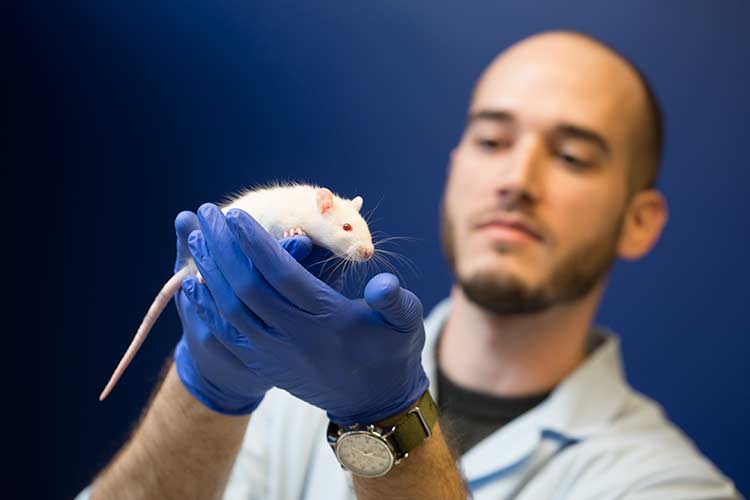
Building and Expanding Networks for Young Neuroscientists
Application season is now open for the Neuroscience Scholars Program (NSP), which has provided guidance and support for underrepresented and diverse neuroscience researchers for more than 30 years. Interested graduate students and postdocs are encouraged to apply to the program now.
Each year the program selects up to 15 young scientists as NSP fellows, who participate in intensive mentoring and networking with former NSP participants and other leaders in the field. NSP fellows also receive financial support to attend SfN’s annual meeting, giving them the chance to present scientific abstracts and connect with colleagues from around the world.
Since receiving continued funding from the National Institute of Neurological Disorders and Stroke (NINDS) nearly two years ago, NSP has expanded its reach and impact. In addition to the NSP fellows, the program now also provides support and resources for the remaining eligible applicants, who are designated as NSP associates. These young scientists gain access to select events at the annual meeting, an online library of educational resources and webinars, and an online community of past and current NSP participants for monthly discussions on scientific and professional development topics.
Marguerite Matthews, a former fellow who now serves as an NSP class advisor leading online discussions, sees great value in creating online networking opportunities for the program. “There weren't advisors or associates when I was an NSP fellow, and it seems like they’re building this really nice network and community, and there are so many more people to draw from to connect with.”
Diversity in Neuroscience
SfN recognizes that it is extremely important for the field of neuroscience to represent diverse groups of scientists, and NSP helps facilitate that goal by offering support for underrepresented neuroscientists. Ensuring diversity in the field opens up the opportunity to meet and collaborate with people who have different experimental viewpoints — which is essential for problem-solving.
NSP Fellow Alexandra Colón-Rodríguez, a graduate student at Michigan State University, stressed the importance of diversity for furthering science. “So for me, diversity is everything,” she said. “Because you need to know different kinds of perspectives in order to be a well-rounded scientific field. You need to have different mindsets, different perspectives.”
NSP co-director Gina Poe has seen firsthand how the Neuroscience Scholars Program has changed SfN. Poe recalled the lack of diversity when she first started attending SfN’s annual meeting. “I would wander around among the posters as a graduate student and I saw perhaps one other brown face in the entire group,” she said. “You [didn’t] have representation out there to see that you are just like everyone else.”
Now, NSP provides a way for underrepresented neuroscience researchers to connect with one another. “When they come together here as a community, they know that they are not alone and that they have brothers and sister to call upon,” Poe said. “That makes a world of difference in making you feel like you really can do this because other people around you are doing it.”
Community Building and Networking
NSP relies on strong mentoring and community building to serve the field, and SfN is a partner in the National Research Mentoring Network (NRMN), funded by NIH, which provides students and scientists across all career stages with enhanced networking, professional development, research resources, and mentorship experiences.
One NSP networking event is the Diversity Fellows Poster Session that takes place at SfN’s annual meeting each year. “The diversity poster session is really important because it lets people know what people of color are doing in science,” said NSP Fellow Lyl Tomlinson, a PhD student at Stony Brook University. “It’s a good opportunity for connecting as far as getting programs to the right people and getting research out to everyone else.”
Iboro Umana, an NSP fellow and MD/PhD student at the University of Chicago, said the poster session allowed him to present his research and build great connections that could advance his career. “It really allows us to connect with one another, help each other, and also learn from our seniors,” he said. “It has been instrumental in my career development.”
The opportunities provided by NSP were so important to former fellow Joseph Arboleda-Velasquez that he decided to become a NSP class advisor after completing the program.
“I just felt like they have given me so much,” he said. “I felt like, really, the least I could do was also to contribute to the program and help the next generation of people coming and joining the program.”
Visit SfN.org/NSP for more information or apply to become a NSP fellow or associate.


















